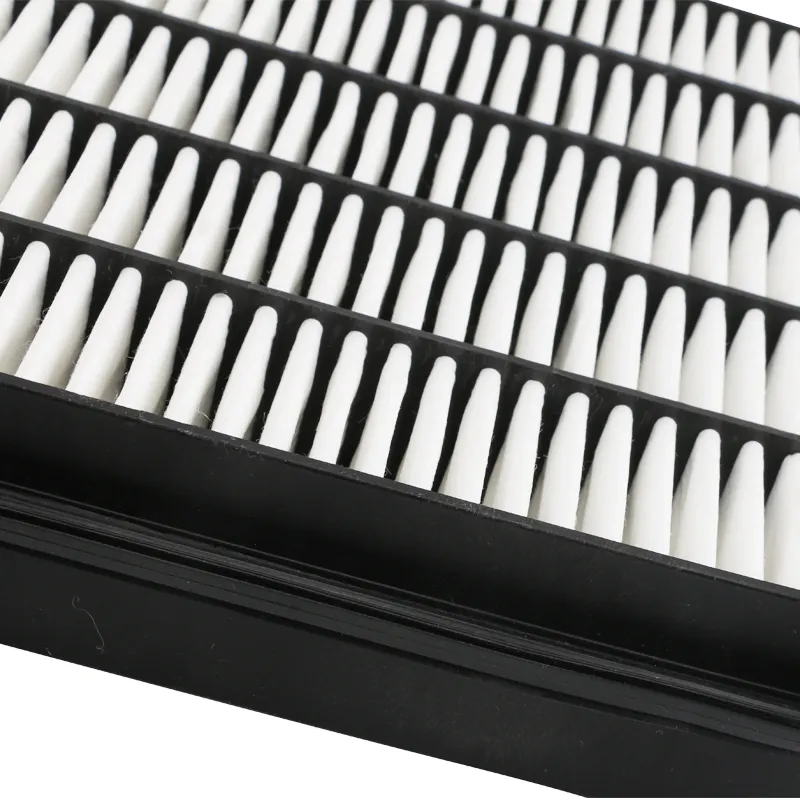Dec . 10, 2024 05:56 Back to list
vw jetta oil filter
Understanding the VW Jetta Oil Filter Importance, Maintenance, and Selection
The Volkswagen Jetta has been a beloved compact sedan since its introduction in the late 1970s. Known for its reliability, performance, and comfort, the Jetta appeals to a wide range of drivers. However, like any vehicle, proper maintenance is essential to ensure its longevity and efficiency. One of the crucial components that often goes overlooked is the oil filter. In this article, we will explore the importance of the oil filter in a VW Jetta, how to maintain it, and what to consider when selecting a replacement.
Importance of the Oil Filter
The oil filter plays a pivotal role in the overall performance of your VW Jetta's engine. Its primary function is to remove contaminants from engine oil, which can accumulate over time due to combustion and wear. These impurities, if not filtered out, can lead to engine wear or even catastrophic failures. By trapping particles such as dirt, metal shavings, and sludge, an oil filter helps maintain the cleanliness of the engine oil, ensuring that it lubricates the engine parts effectively.
In addition to cleaning the oil, a properly functioning oil filter contributes to optimal oil pressure. This pressure is crucial for the engine's operation, as it ensures that all moving parts are adequately lubricated. Without the right oil pressure, the engine can suffer from increased friction, leading to overheating and premature wear.
Maintenance of the Oil Filter
To keep your VW Jetta running smoothly, regular maintenance of the oil filter is necessary. It is generally recommended to replace the oil filter every time you change the engine oil. For most drivers, this translates to approximately every 5,000 to 7,500 miles, depending on the type of oil used (conventional vs. synthetic) and driving conditions.
Before changing the oil filter, it’s important to gather the necessary tools and supplies. You will need a new oil filter compatible with your Jetta model, an oil filter wrench, a drain pan, and fresh engine oil. Once you have these items ready, follow these steps
1. Warm Up the Engine Run your vehicle for a few minutes to warm up the oil, making it easier to drain. 2. Lift the Vehicle Safely lift the front of your Jetta using ramps or jack stands. 3. Drain the Old Oil Place the drain pan under the oil pan and remove the oil drain plug. Allow the oil to fully drain out. 4. Remove the Old Oil Filter Use the oil filter wrench to remove the old oil filter. Be cautious, as it may still contain some oil. 5. Install the New Oil Filter Before installing the new filter, apply a small amount of fresh oil to the gasket of the new filter to ensure a good seal. Screw it on by hand until snug, then give it a slight additional turn.
vw jetta oil filter

6. Replace the Oil Drain Plug Once the old oil has drained completely, replace the oil drain plug.
7. Add New Oil Pour the new engine oil into the oil filler cap. Check the owner's manual for the correct quantity and oil type recommended for your specific Jetta model.
8. Start the Engine After adding oil, start the engine and allow it to run for a minute. Check for any leaks around the oil filter and drain plug.
Selecting the Right Oil Filter
When it comes to selecting a replacement oil filter for your VW Jetta, there are several options available. OEM (Original Equipment Manufacturer) filters tend to offer the best fit and filtration quality, while aftermarket filters may provide more affordable options. For optimal engine performance and longevity, it is advisable to stick with high-quality filters that meet or exceed Volkswagen's specifications.
Factors to consider when choosing an oil filter include filtration efficiency, build quality, and compatibility with your specific Jetta engine. Reading customer reviews and consulting with professionals can also aid in making an informed decision.
Conclusion
In summary, the oil filter is an essential component that maintains the health of your VW Jetta's engine. Regular maintenance and timely replacement of the oil filter can prevent costly repairs and prolong the life of your vehicle. By understanding the importance of this small but mighty component, you can ensure that your Jetta runs smoothly for years to come. Always refer to your owner’s manual for specific maintenance guidelines and recommendations tailored to your model.
-
Toyota Corolla Hatchback Cabin Air Filter – High Efficiency & Easy Installation
NewsJul.08,2025
-
Premium Canister Fuel Filter Supplier High Quality Oil Filtration Solutions
NewsJul.08,2025
-
Premium Car Filter Oil Solutions Leading Car Oil Filter Exporter Hyundai Car Oil Filter Exporters
NewsJul.08,2025
-
Buy 17x21x1 Air Filter – Improve Air Quality & HVAC Efficiency Affordable Air & Cabin Air Filter Cost
NewsJul.07,2025
-
High-Performance Filter Element Fuel – Durable, Efficient & Cost-Effective Solutions
NewsJul.07,2025
-
High-Quality Engine Filter and Cabin Filter for Superior Airflow Affordable Cabin and Engine Air Filter Cost
NewsJul.07,2025


